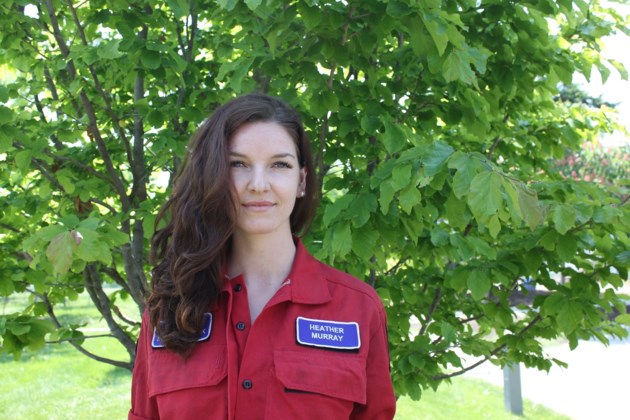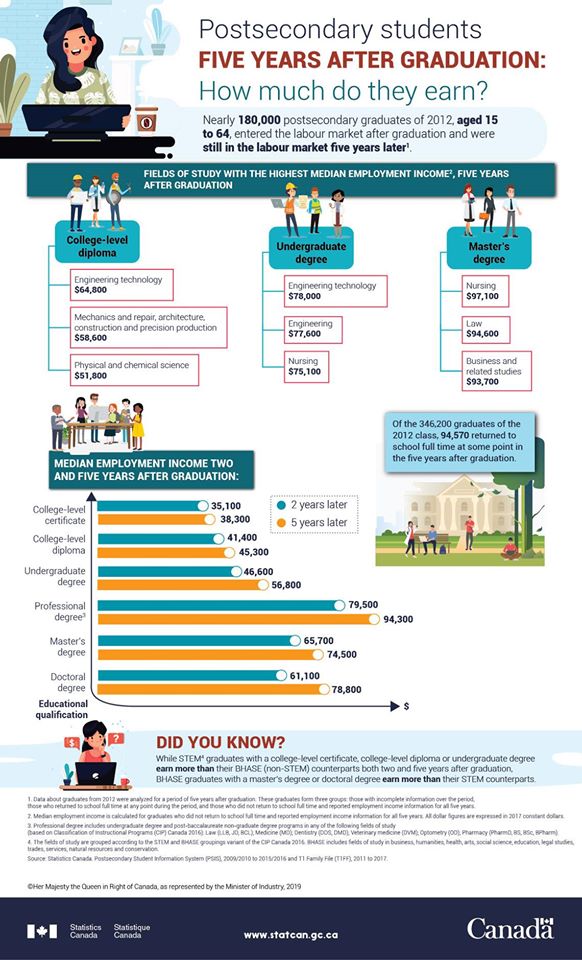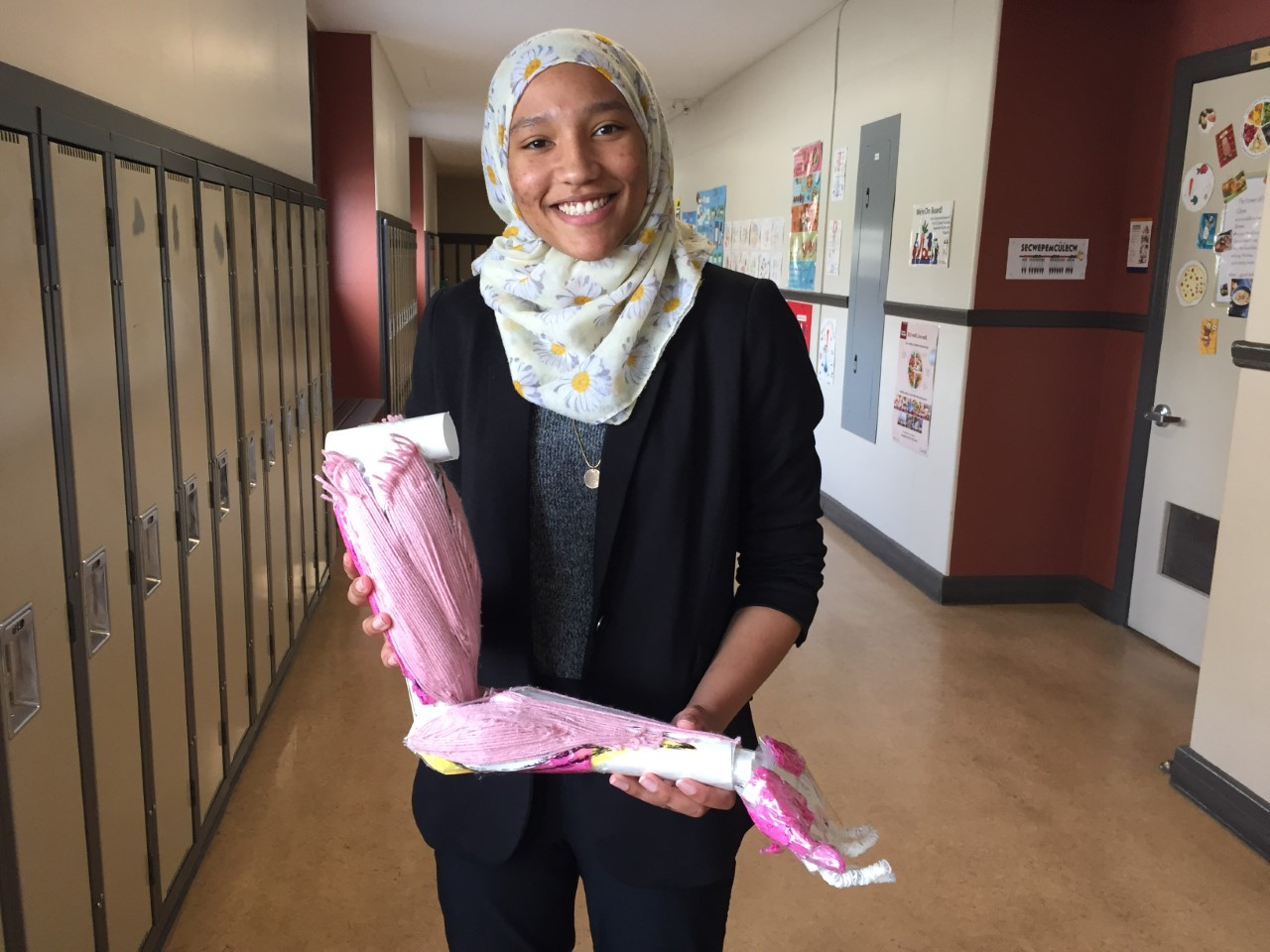Section outline
-
-
Welcome to Career Education Resources for 10-12. This site contains School District Documents and Educational Resources.
School District Documents include curriculum, learning maps and guiding documents - stay tuned for the revised CLE-CLC Guidebook.
Educational Resources are organized into three themes and a Capstone section:
Career Development - Self Awareness
Resources support self-awareness, competencies and the educated citizen, employability and essential skills, strategies for maintaining well being, self-marketing, workplace behaviour and safety
Community Connections - Positive Engagement
Resources support inclusive practice, world views and diverse perspectives, networking, career-life factors, exploring career-life roles in our communities
Career and Life Planning - Exploring Possibilities
Resources support career-life planning for possible preferred next steps, financial planning, and local and global labour market trends
Capstone - Ministry of Education Guide, reflection resource and samples
-
-
-
Appendix F- Update for the Career Education Graduation Program Resource Guide
-
A collection of resources to support Career Education planning and delivery.
-
-
101 Career Paths for Every Personality explores is a guide that connects personality types with career paths.
-
A series of Ted Talks by Wendy De La Rosa on decision-making and factors affecting our financial decisions.
-
9 free practice aptitude tests, each test has 10 timed questions with feedback provided after the test.
-
 Backpack to Briefcase has a series of activities to help support students to build their self-awareness and to make connections to potential future selves.
Backpack to Briefcase has a series of activities to help support students to build their self-awareness and to make connections to potential future selves. -
Breaking down work ethic into specific attributes that students can develop. These are free samples. For access to the full resource contact 'Bring Your A Game to Work'. The 2018 update 'Next Generation Adult Curriculum Guide Sample' is the newest sample.
-
Students will see fifteen sets of four pictures that show specific work activities to explore careers that best fit their personality (based on Personality types and the Holland Codes)
-
Exploring how the 7 competencies for work can be developed. The 7 competencies are: critical thinking/problem solving, oral/written communications, teamwork/collaboration, information technology application, leadership, professionalism/work ethic, and career management.
see also
-
This survey (approximately 10 minutes) lets you rate activities you enjoy, your personal qualities, and school subjects to see which career clusters match your interests.
-
Conversation Starters that parents can have with students by Mark Perna and TFS.
-
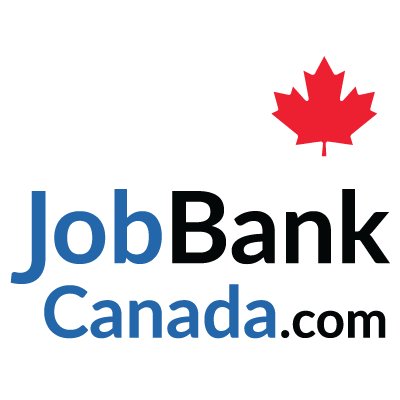
Explore 3 career-oriented and 3 personality quizzes to find out what occupations may be a good fit
1. Your abilities 1. multiple intelligences
2. Data, people and things 2.learning style
3. Your work preferences 3. work value
-
The Circle of Courage model provides educators with an evidence-based approach for teaching youth. This site also integrates research on positive youth development with Maslow's Hierarchy of Needs. Explore students' strengths (interests, values, and skills) and ask them to see where these strengths fit in the Circle of Courage. Extend on this by having students identify what strengths they would like to improve.
-
Competencies describe the behaviours and attributes that you demonstrate when doing your job. Find out how they are used in the BC Public Services hiring processes while encouraging students to reflect on their own competencies. Of note, is the "Competencies for Interviews and Hiring".
-
The Core Competencies are sets of intellectual, personal, and social and emotional proficiencies, they are organized into three categories: communication, thinking, and personal and social. See Core Competency Profiles for reflection tools to use in the classroom.

-
This personality test looks to see if you are an artist, thinker, adventurer, maker, producer, dreamer, innovator or visionary. It takes less than ten minutes, with very artistic and entertaining animation that connects to answers, it is free and you do not have to sign up.
-
Digital Citizenship Curriculum is a free on-line American resource that provides classroom tools and helps prepares students to be digital citizens.
Lessons can be filtered by grade and easily adapted to meet the BC Curriculum.
Examples:
-
Looking for self-assessment tools and career quizzes to help identify your strengths, skills, and interests to help find a career that fits you? Take the ‘Find Your Path’ career survey as a first step in identifying some possible careers that suit your interests. There are 60 ‘YES’ or ‘NO’ questions which should take approximately 15 minutes to complete. There are also biographies on current Métis Role Models and, did you know Terry Fox comes from a Métis fur-trading
family?
-
Education Planner.org, has two free career and skills matching activities: Career Clusters Activity and Which Careers Match Your Skills? Or Careers can be explored in three categories: "I want to be a..." "I'll know it when I see it" or "I'm not really sure" at My Next Move. This is American based but access is free and students do not have to sign up.
-
Employability skills are the skills you need to enter, stay in, and progress in the world of work. This profile can be used as a framework for dialogue and action. Employability Skills (The Conference Board of Canada). See the free downloadable preview of the Employability Skills Toolkit, the Innovation Skills Profile, and the Commercialization Skills Profile.
-
A combination of informative videos and interactive quizzes to help dig deeper into interests, strengths, and values to make career path decisions.
-
There are some skills in life that everyone needs. Managing money, finding housing and work are just a few of these things. Explore this section to learn more about these life skills. Foundry BC also has additional information on mental health, substance abuse, healthy living, and tough topics.
-
Hope-filled Engagement, Guiding Circles part 1 and 2, and Career Pathways Quick Trip, and the Wheel Career Framework by Gray Poehnell and Norman Amundson
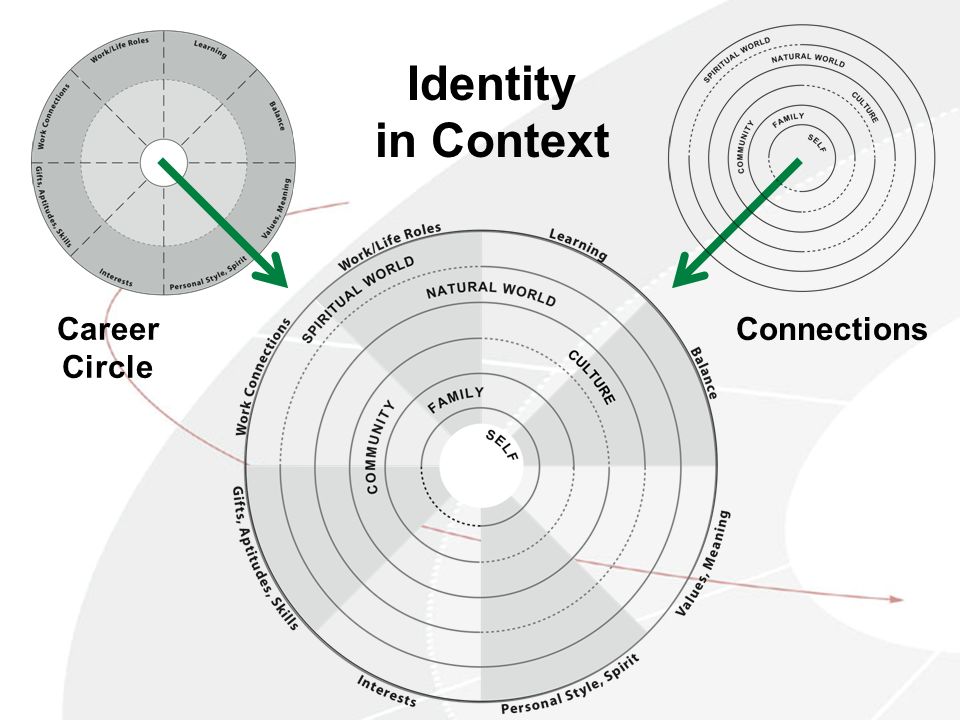
-
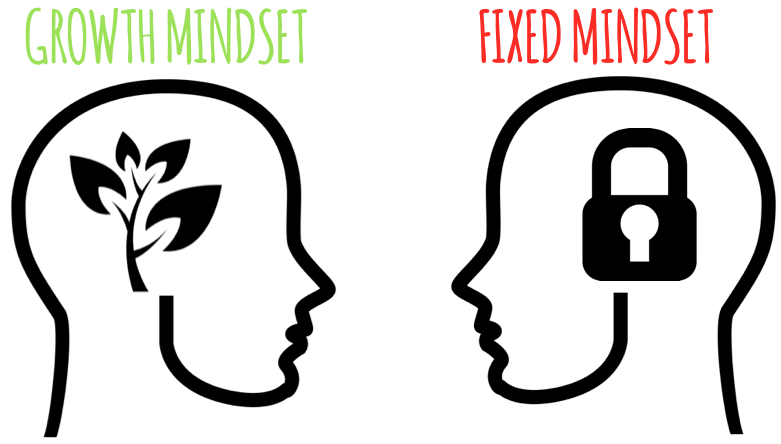 Carol Dweck compares fixed and growth mindsets. This model shows that intelligence can be developed. As a result, higher levels of achievement can be obtained. This is an overarching skill that supports career development. There is a Mindset Assessment (mindsetworks) but names and e-mails are required for results.
Carol Dweck compares fixed and growth mindsets. This model shows that intelligence can be developed. As a result, higher levels of achievement can be obtained. This is an overarching skill that supports career development. There is a Mindset Assessment (mindsetworks) but names and e-mails are required for results.Angela Lee Duckworth Grit: The power of passion and perseverance (6 minute Ted Talk)
-
This quiz asks 26 yes-or-no questions that are primarily geared towards different career focuses. While the questions themselves are limited (as yes-or-no questions typically are) it is interesting to note that the quiz tracks your progress in a graph that you can look at while answering questions.
-
Career Headlines from Career Solutions Publishing has several free sample lessons.
For example: Becoming a Skilled Collaborator asks students to take a good, strong look at themselves to identify what they do best in a team situation, and what they do less well so they can improve.
-
First Nations Health Authority has created a daily organizer to support the achieving and maintaining a healthy lifestyle.
-
Five principles, developed by Dave E. Redekopp help students build their self-awareness and career skills while realizing that career development is an ongoing process of reflection and action:
- Change is Constant
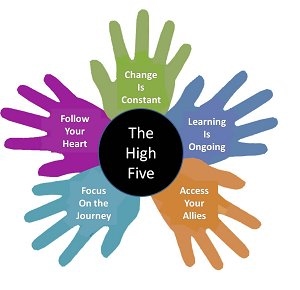
- Learning is Ongoing
- Focus on the Journey
- Follow Your Heart
- Access Your Allies and Find Helping Hands
- Change is Constant
-
This site provides a free basic report and it take around 10 minutes to complete. There is an option to create an account or view results on the spot.
-
There are 17 Indigenous Relations Behavioural Competencies. These were developed from BC Public Service and Indigenous peoples in BC. BC Public Services is recommending employees to add these competencies to their profiles, students can do the same. There are four that are being emphasized: self-discovery and awareness, sustained learning and development, cultural agility and change leadership.
-
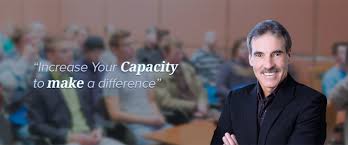 In these inspirational moments, Ken Kies takes learnings from over 30 years of leadership training and distills it down to bite-sized tidbits of wisdom to help you live and lead your best. Videos are approximately 3-5 minutes long and cover a wide range of motivational topics such as Characteristics of success, Integrity, The gift of Forgiveness to media addiction.
In these inspirational moments, Ken Kies takes learnings from over 30 years of leadership training and distills it down to bite-sized tidbits of wisdom to help you live and lead your best. Videos are approximately 3-5 minutes long and cover a wide range of motivational topics such as Characteristics of success, Integrity, The gift of Forgiveness to media addiction. -
Teacher's Guide for Entrepreneurship.

-
A blog by Katie Horne that explores tricky job interview questions are asked with sample answers. The STAR method is also used in one of the answers.
-
Everyone's timing is Different" Jay Shetty challenges the set school to career timeline, set in the UK (4 minutes).
How to Get your First Job" Jay Shetty describes how he reached out to his network to get his first job and gives 6 tips for finding a job, set in the UK (6 minutes).
-
Explore the 6 essential lessons of a satisfying productive career through a graphic novel.
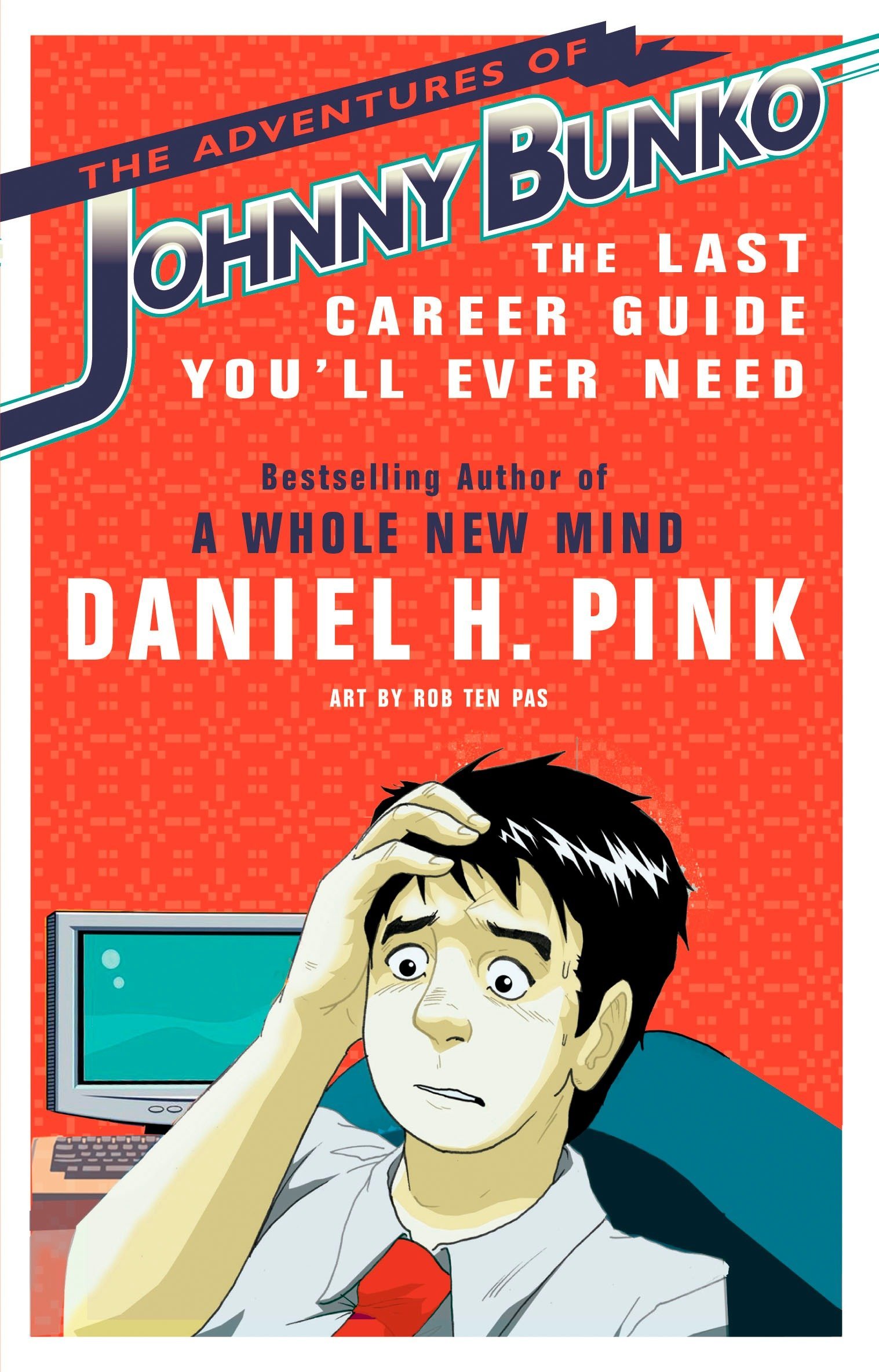
-
Kelty Mental Health Resource Centre, BC Children's Hospital has numerous resources that can be connected to well-being strategies. The following two examples go really in-depth into mental health, however,
the strategies for wellness sections connect to the CE curriculum.
Two resources that give good wellness strategies are:
Stop Wondering, Start Knowing: A Mental Health Video Resource - Mental Health 101 and Section Two: Recognizing Mental health and Achieving Mental Wellness
Mental Health & High School Curriculum Guide - Module 6 looks at strategies for wellness.
-
Students reflect on their self-awareness by writing a letter to their future self.
-
Free Evidence-Based Mental Health strategies. MindShift CBT uses scientifically proven strategies based on Cognitive Behavioural Therapy (CBT) to help you learn to relax and be mindful, develop more effective ways of thinking, and use active steps to take charge
-
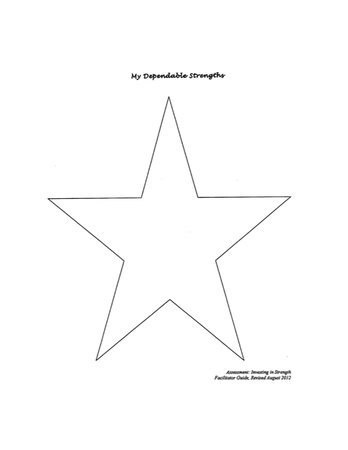 My Dependable Strengths is an assessment tool that provides a visual of students' strengths. Start by asking students to talk about something they accomplished in their life that they were proud of or enjoyed doing. The listener places interests, strengths and values around the star. Herky Cutler Engaging Client Assessment Tools That Rock (2017)
My Dependable Strengths is an assessment tool that provides a visual of students' strengths. Start by asking students to talk about something they accomplished in their life that they were proud of or enjoyed doing. The listener places interests, strengths and values around the star. Herky Cutler Engaging Client Assessment Tools That Rock (2017) -
Dr Seuss' masterful story "Oh, The Places You'll Go!" instructs readers to moving forward in life and overcoming challenges. Ideal for any age this book has been a guide to graduates of Kindergarten through college and remains a great advisor to many adults (6 minutes).
Suggested activity: Look at the theme. How does it connect with where you are at right now in your life?
-
A personal development plan workbook by Mind Tools, divided into seven steps and three sections: understanding yourself, defining career objectives, and creating a personal development plan.
-
The Queen’s Skills Cards are a hands-on, fun way to help students name and describe their skills so they can approach the world of work with greater clarity and confidence. They are excellent prompts that are strength-based, student-driven, and past-or Future-Focused.
-
A tool to discover new and unexpected career possibilities based on current skills and on growing job fields.
-
WorkBC explores what a resume and cover letter is, information to include, stylistic choices that match today's needs, both strong and bad examples, transferable skills, and a list of power words.
-
Students attended a presentation by Alvin Law. Alvin was born without arms, due to a (now banned) prescription medication that his birth mother was given while pregnant. Alvin uses his story to challenge audiences to rewrite the negative stories they tell themselves—about themselves. For more information About Alvin, visit: https://alvinlaw.com/about/ (there are three parts),
-
Explore in a Venn diagram 'sense of purpose' using the Ministry Career Education Guide's definition as a prompt (p.2)
Things you like to do
Your strengths
Opportunites in the world.
-
Resources available for download that describe 9 essential skills identified by the government of Canada as needed for the workplace, also at this site are 9 videos that explore essential skills or the essential skills mobile app.
-
Skills for Success outlines 9 skills that employers are looking for and has free online assessment tools.
-
Skills Ready provides tools and resources such as a self-assessment rubric on Attitiude Skills and Knowledge.
-
Start with SMART goals then move into
based on goals students have set. -
Numerous motivation talks organized by name, topic, type. For example Chris Hadfied talks about how he went from a little boy to an astronaut and decision making or Jesse Brown talks about the future of Canada? the Speakers' Spotlight platform sells the talks but the videos are free.
-
 The Stigma-Free Society is offering tool kits to educators to promote wellness for Grades 4-7 and 8-12. Kits include documentary videos, mental health topics and personal stories, and interactive components for youth. Career Education learning standards are identified in numerous lessons.
The Stigma-Free Society is offering tool kits to educators to promote wellness for Grades 4-7 and 8-12. Kits include documentary videos, mental health topics and personal stories, and interactive components for youth. Career Education learning standards are identified in numerous lessons. -
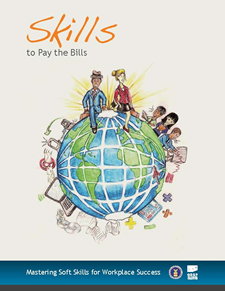 "Skills to Pay the Bills: Mastering Soft Skills for Workplace Success," is a curriculum developed by ODEP focused on teaching "soft" or workforce readiness skills to youth, including youth with disabilities. Created for youth development professionals as an introduction to workplace interpersonal and professional skills, the curriculum is targeted for youth ages 14 to 21 in both in-school and out-of-school environments. The basic structure of the program is comprised of modular, hands-on, engaging activities that focus on six key skill areas: communication, enthusiasm and attitude, teamwork, networking, problem solving and critical thinking, and professionalism.
"Skills to Pay the Bills: Mastering Soft Skills for Workplace Success," is a curriculum developed by ODEP focused on teaching "soft" or workforce readiness skills to youth, including youth with disabilities. Created for youth development professionals as an introduction to workplace interpersonal and professional skills, the curriculum is targeted for youth ages 14 to 21 in both in-school and out-of-school environments. The basic structure of the program is comprised of modular, hands-on, engaging activities that focus on six key skill areas: communication, enthusiasm and attitude, teamwork, networking, problem solving and critical thinking, and professionalism. -
7 Teen Wellness Assessments
Self Exploration of the ability to...
1) be organized, 2) deal with stress, 3) create and maintain healthy relationships, 4) balance work and play, 5) express emotions in a healthy way, 6) develop a strong personality value system, 7) get the most of educational, volunteer, and employment opportunities.
-
Balance Careers is home to experts who provide clear, practical advice on job searching, resume writing, salary negotiations, and other career planning topics such as work/life balance and diversity.
-
The BC Education Statement of Mission: The Educated Citizen, defined in 1989 in the Successful Learner Traits Framework.
-
Explore the science of how to get better at getting better. with learner shorts, videos, podcasts and articles on numerous topics ranging from mindsets vs self-awareness, fixed mindset vs fear.
-
This links to the trailer the full documentary is $3.99. Encourages self-awareness, what one needs verses wants, and connects wants and needs to global and local implications. Alternatively 18 minute TED Talk
-
This children's story can be used to explore reflection and resiliency, plus Spires is from BC.
-
24 question quiz for students to answer and receive some suggestions about possible career choices.
-
Explore balance by using the Wellness wheel (there are 7 dimensions of wellness) and there is a Wellness Quiz.
-
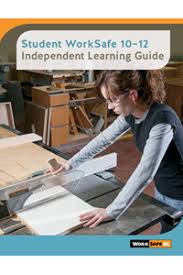 Visit Student WorkSafe for WorkSafeBC resources.
Visit Student WorkSafe for WorkSafeBC resources.Student Worksafe 10-12 Independent Learning Guide, WorkSafeBC has 10 activities for students to explore; ranging from rights and responsibilities to effective workplace communication, young worker training, spotting the hazard, etc... There is also a complimentary Student WorkSafe 10-12 Resource for Teachers. workSafeBC also has yearly video contests if you are looking for a fun challenge. WorksafeBC has also provided Ideas for using WorksafeBC resources to teach occupational health and safety (see pdf)
Additional resources are
Getting a Job? Ask Questions About Safety
Support for Employers: Training and Orientation for Young and New Workers
Know the Hazards (guides for educators and young workers)
-
A collection of social and emotional learning (SEL) resources for educators and other adults who work with children and youth.
-
Way of life app is an intuitive habit tracker to support motivation to build a better, stronger and healthier you. This is a free app - it is important to consider student privacy policies when using apps.
-
19 Career Lessons and Activities for Grades 9-12 -
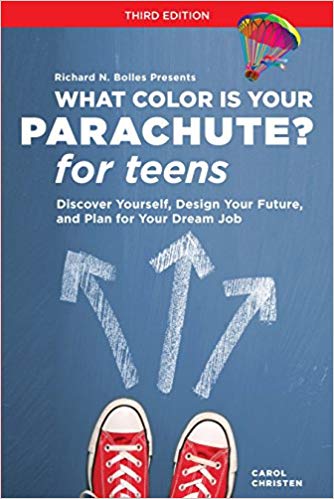 What Colour is Your Parachute? For Teens helps teens explore who they are, what's important to them, and what they like to do. This self awareness builds foundations towards possible preferred life-choices. This link provides a review of this book. Cost is approximately $18 or the book is available at HGEC.
What Colour is Your Parachute? For Teens helps teens explore who they are, what's important to them, and what they like to do. This self awareness builds foundations towards possible preferred life-choices. This link provides a review of this book. Cost is approximately $18 or the book is available at HGEC. -
Use SOAR and STAR TEchniques as strategies to explore how weaknesses can be a strength.
SOAR (situation, Obstacles, Action, Results)
STAR (Situation, Task, Action, Results)
-
Three quizzes for students to take that offer suggestions about careers that could be a good fit.
-
An online career planning tool for students that contains essential career, education, and job search resources to help them plan their career options. Lesson plans are available for teachers to download on the Blueprint Builder page.
-
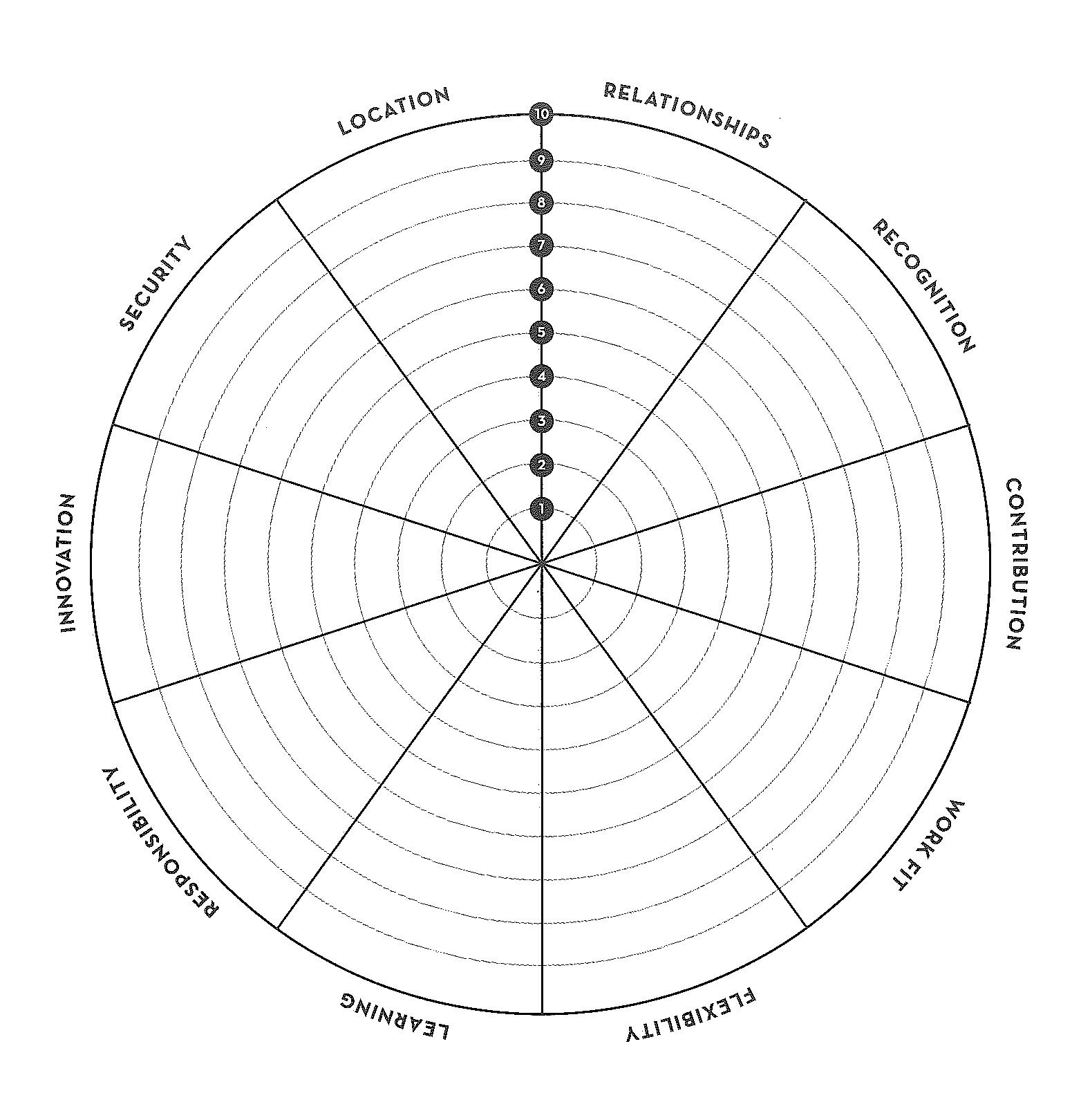
What is important to you? Reflect on your self-awareness by drawing a line or colour on each separate ‘pie’ section. Each line is on a scale of 1 to 10 – where 10 is of most importance and 1 is of least importance. Amundson, N.E (2018). Active Engagement (Anniversary Edition). Richmond: Ergon communications available at HGEC.
-
The Little Black Book of Scams (Competition Bureau Canada) has numerous well-being and self-awareness tips on how to recognize and keep safe from fraud - scammers often target people in transition, such as starting post-secondary.

-
120 statement questions to find out more about who you are and your strengths. Results are instantly provided.
-
This is a free personality test that can help students explore who they are and why they do things the way they do. There are 4 main Personality Types: Analyst, Diplomats, Sentinels, and Explorers that are then further divided into subcategories. Some preteaching of the personality types is recommended.
-
A guide to behaviour interview questions.
-
An accessible article from the Muse, that explores pronouns and gender-inclusive language:
"Picture this: You’re gathered around the coffee machine one morning with a group of your co-workers when Joe says, “You guys missed a great story Robin told while we were manning the conference booth yesterday. No seriously, dude, she’s so funny.”
Sounds normal enough. But read it over again and see if you can spot all the ways Joe might’ve unintentionally made people feel uncomfortable or excluded."
-
Kamloops Fire Centre Career Clusters - Explore real people in real careers within the BC Wildfire Service. This was a two-week series on Kamloops Fire Centre by Tereza Verenca, Kamloops Matters.
-
Explore the careers in bio-economy. The bio-economy can be defined as the economic activity associated with the invention, development, production, and use of products and processes that are based primarily on biological resources. The bio-economy includes the use of resources from agriculture, forestry, fishery-based biomass, and organic waste. The field is multidisciplinary in that it cuts across health, energy, agriculture, chemicals, and materials industries.
There are up to date labour market reports, skills needed, career profiles and more.
-
Use the interactive bouncy map
s to build world perspective by exploring what countries have the most energy, minerals, agriculture, livestock...and more.
-
Career Clusters, a guide from Advance CTE: State Leaders Connecting Learning to Work. Career Clusters explores the essential knowledge and skills for the 16 Career Clusters and their Career Pathways and creating individual student plans of study for a complete range of career options.
-
 Career Education and the Sustainable Development Goals (SDGs) support learning that imagines career-life futures. The Career Education and the SDGs pdf PowerPoint has lessons from K-3 'People in our Neighbourhood' and 4-7 'Walk, work and Wonder', and Grade 8-12 'Community Asset Mapping' that connect curriculum learning with SDGs.
Career Education and the Sustainable Development Goals (SDGs) support learning that imagines career-life futures. The Career Education and the SDGs pdf PowerPoint has lessons from K-3 'People in our Neighbourhood' and 4-7 'Walk, work and Wonder', and Grade 8-12 'Community Asset Mapping' that connect curriculum learning with SDGs. -
Try a 3D experience with Google Expeditions app (devices needed). Search 100+ Career Expeditions or Areas of Interest virtually. Search 'Careers' in the Google Expedition app. Virtual Reality devices are available through HGEC or Elizabeth deVries for the 3D tours. Devices can be used for 360 tours too if you do not have VR headset/viewer/goggles.
-
Career Explorations is organized by interests and then sample careers linked to the Occupational Outlook Handbook which has written summaries and corresponding videos.
-
The aim of Career Journeys First Nations Career Role Model Program, developed by the First Nations Education Steering Committee and First Nations Schools Association, is to inspire First Nations students to set career goals and to create for students the awareness of possible educational and training pathways to successful careers. 12 role models (from BC) describe their career journeys. Posters and 3 to 4 minute interviews with the Role Models are also available at www.fnesc.ca/careerjourneys.
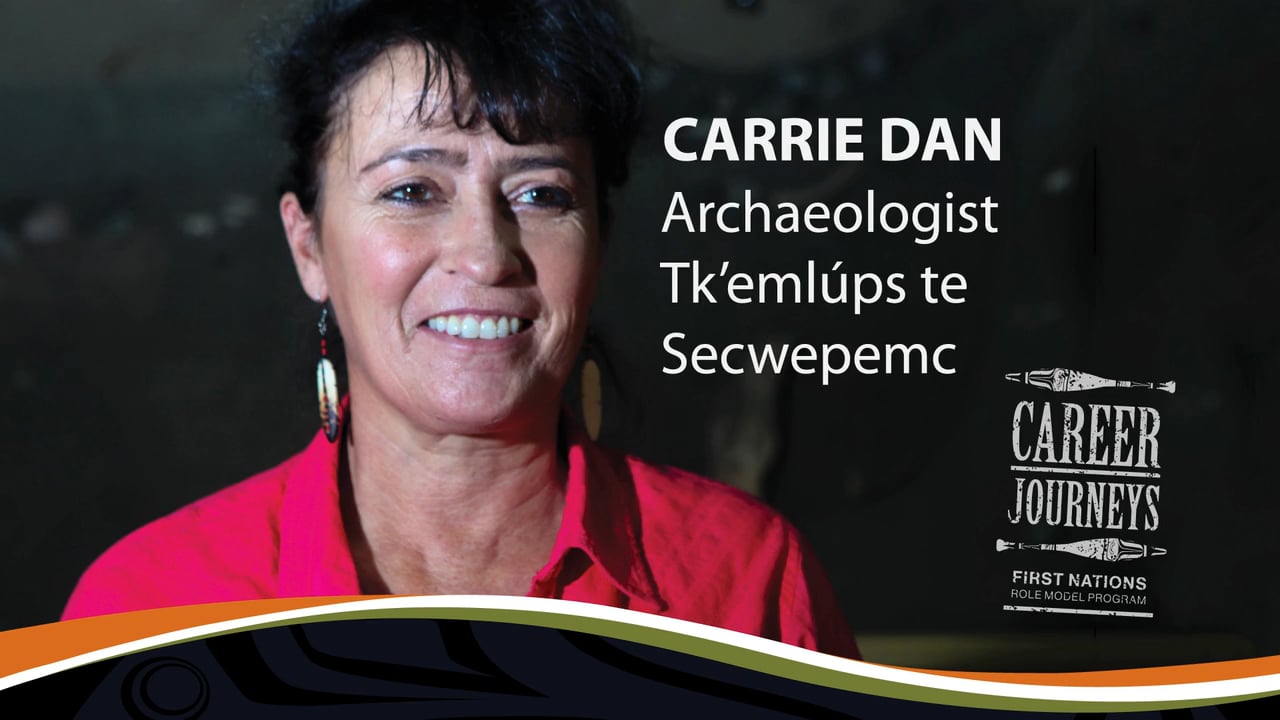
-
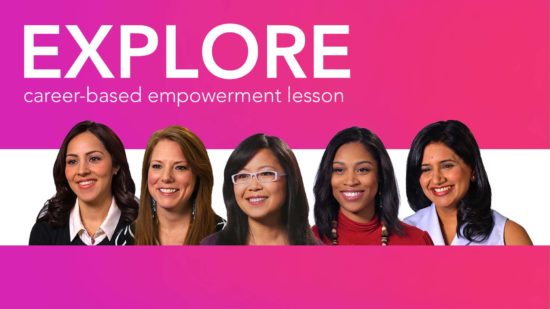 Career Girls is founded on the dream that every girl around the world has access to diverse and accomplished women role models to learn from their experiences and discover their own path to empowerment. This website explores specific careers as well as career clusters while role modelling accomplished women within career clusters.
Career Girls is founded on the dream that every girl around the world has access to diverse and accomplished women role models to learn from their experiences and discover their own path to empowerment. This website explores specific careers as well as career clusters while role modelling accomplished women within career clusters. -
235 titles in the Career Q&A: Professional Advice and Insight series in the Learn360 database. Careers range from Ecologists to Public Opinion researchers and are approximately 15 minutes in length.
-
Career Zones, developed by the Ministry of Education, are guides that provide information on 10 Career Zones: Arts& Entertainment, Aviation & Aerospace, Construction, Energy, Oil and Gas, Health, Information and Communication Technology, Marine, Mining, Sustainable Forestry and Forest Production, and Tourism and Hospitality.
-
Careers: The Graphic Guide to Finding the Perfect Job for You explores career clusters with illustrative tables that illustrate the realities of the job, such as location, lifestyles and skills needed. Two sets of eight are available at the Henry Grube Education Centre. Explore this guide with a connect-extend-challenge or add 'new' pages using the Careers Graphic guide template.
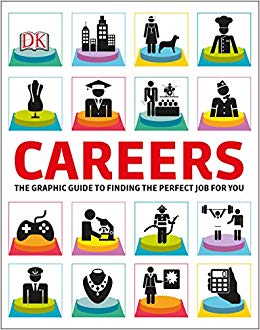
-
Conversation norms for dialogues about world and indigenous perspectives.
-
Creating a Career with the Arts in Mind is an eleven-part series from the Carolina ETV Network that explores topics and advice for teens about the value of arts in careers. This is in the Learn 360 database.
-
Trades and technology related skill exploration, with student and teacher resources.
-
This project includes inspiring 4-5 minute Career Tech videos of people who have overcome adversity and who have shared their stories.
-
Explore world perspectives and increase students' self-awareness of how their lifestyles align with families around the world.
Dollar Street is the brainchild of Anna Rosling that uses photos from everyday life on different incomes all over the world and where they fit on a scale from lowest to highest on a live street metaphor.
-
Edge Factor has engaging videos and interactive activities that help students explore careers and build self-awareness. This is a paid resource but there are some free resources.
-
Fortis BC has lessons for both CLC. See Fortis BC Energy at work for current on-line lessons and connections to the Big Ideas in the Career Education curriculum. This folder has the downloaded lesson material for the CLE 10 Safety lesson plans.
CLE: Workplace Safety, Trends and hot jobs, Career Exploration in the Energy Sector
CLC: Speak up for Safety, Staying Safe at Work
-
go2HR Educator Page has useful tools for classrooms, from hands-on projects to helpful information on careers in Tourism
Tourism Labour Market information - provincial and regional
Career Explorer - Is Tourism for You? Interactive Quizzes, Find a Job
Got Skills? (worksheet)
Thompson Okanagan Tourism Association Career Video & Guide
Information on relevant industry training certificates
These are printable samples.
- Tourism Labour Market information - Thompson Okanagan
- Tourism Labour Market information - BC
- Got Skills
- Guide Book: Exploring a Career in Thompson Okanagan's Tourism Industry
- Tourism Labour Market information - Thompson Okanagan
-
Grow BC is a resource designed for teachers to show K-12 students the diversity of our province’s commodities and the importance of BC’s agriculture industry. It includes topics for straightforward integration into class curriculum. Teachers were directly involved in developing Grow BC to ensure its effective use.
-
This sample lesson builds a broad understanding of how activities in our daily lives are globalized to varying degrees (The Critical Thinking Consortium).
-
Resources for educators and students to help explore trades.
-
Health Career Guidebooks by First Nations Health Authority explores numerous careers and role models in healthcare.

-
The JobTalks Podcast is a weekly show hosted by Dr. Jon Callegher, a professor and employment researcher. In this podcast, he interviews experts about skills, tips, and tricks that will help you get ahead in the workplace
-
Watch Interviews with tradespeople who love their jobs. Hear how they chose their career, how they entered into it, and about their work. All videos are 2 1/2 to 5 minutes in length. Funded by SSHRC to promote Skilled Trades careers in Canada.
-
Get to know people in Ontario's Construction Industry, learn about the work environment and job requirements from workers who love what they do.
-
Let's Talk Science has a Careers section to connect learning to real people and their careers. There are numerous profiles, teacher resources, and competitions linked with Chatterhigh.
-
Explore perspectives from three Indigenous role models: a doctor, a lawyer, and a professor. National Post article
-
National Occupational Classification (NOC) is a system for describing the occupations of Canadians. It gives statisticians, labour market analysts, career counsellors, employers and individual job seekers a standardized way of describing and understanding the nature of work.
-
10 practical tips to network ranging from spreading goodwill, taking the initiative, to being noticed in a group, from Active Engagement
-
CBC has a series on ODD jobs. this link is to "This industry is not for the weak': Working underwater as a commercial diver. There are four additional ODD JOBS related stories following the link.
Defending dangerous dogs and fur babies: The growing field of animal law
Is this the best job in the world? Making waves as a waterslide designer
'It's certainly not for everyone': What it takes to be a trauma scene cleaner" (please use your school's protocols if students were to explore this job).
Pelvic floor physio: Treating pain during sex and other common women's health issues (please use your school's protocols if students were to explore this job).
-
College grad Sean Aiken didn't know what to do for a career so he set out to work 52 jobs in 52 weeks. Watch free sample clips or explore freesample lessons. The full program is available to purchase.
-
BLS has created our own periodic table! Instead of elements, we have used Science, Technology, Engineering and Math (STEM) occupations. Each occupation is connected to the Occupational Outlook Handbook (U.S. Bureau of Labor Statistics).
-
RBC Disruptors is an ongoing podcast series about reimagining Canada's economy. For example How the NEXT Generation of Entrepreneurs Could Kickstart a Wave of Change has three students from the class of 2020 who share how they are reshaping economic and social systems.
-
Real Talk promotes 'The stuff we wish we knew when we were in high school'. There is access to numerous jobs and real advise is free and there is the 'discover' option that looks into careers through personality type lens (caring, social, geek. handy...). This is a great site to explore clusters as well as specific careers.
-
An online mentoring program that connects rural students, virtually, to post-secondary students as mentors.
-
This UK resource introduces the concept of remote working and is a safety guide. The resource is generic enough that Canadian students could review it if they are interested in learning more about remote working.
-
The 17 Sustainable Development Goals (SDGs) are the world's best plan to build a better world for people and our planet by 2030. Knowing these goals can help students explore possible preferred futures. See the Teacher's Toolkit for Unesco Schools Network in Canada for classroom activities and resources K-12.
-
Explore job postings, career guides and resources.
-
Talking Sticks: Transforming Conversations describes facts, uses, and protocols for talking circles.
-
Talking Trades is a regular KamloopsMatters column by Shannon Ainslie. Ainsley There are articles on local community members and their career-life journeys such as "Kamloops video production company punching above its weight" as well as topics such as "What jobs are classified as trades jobs?".
-
Visual Capitalist has hundreds of infographics, charts, and visualizations that connect big ideas around one universal theme: “What are the fundamental forces driving the future of business and investing? Larger umbrella topics are markets, technology, money, healthcare, energy, mining, green, politics and featured companies.
-
Podcasts on interviews with Americans about their workdays. Some examples are: How Does Monopoly's Senior Director Do Her Job? How Does a Narrative Game Designer Do Her Job? How Do Oyster Farmers Do Their Jobs?
-
113 videos highlighting careers throughout BC.
-
Use the example and RBC Student Budget Calculator to get students to calculate a budget for life after highschool. Then they could make a poster or infographic online to show their learning.
-
How can we prepare Canadians for the future of work? Brookfield Institute's new occupations and skills forecast Ahead by a Decade: Employment in 2030 explores how Canada’s labour market may evolve in the next decade.
- Explore the occupations projected to grow or decline in employment share in Canada in the next 10 years.
- Explore the skills, abilities, and knowledge traits driving these results.
- Understand what experts think about the future of employment in Canada.
- Consider how the future of employment could be impacted by disruption, potentially diverging from the projections of the Canadian Occupational Projection System (COPS).
Also, forecast results are available through an interactive web application; which enables users to filter forecast results by occupations, skills, geography, and demographic characteristics.
Check out Brookfield Institute's publication Yesterday's Gone to dive into 8 megatrends.
- Explore the occupations projected to grow or decline in employment share in Canada in the next 10 years.
-
Seniors are undergoing a major life transition as they prepare to graduate high school and launch into the adult world. This passage is a moment when students ask themselves important questions, such as:
- How does my life have meaning and purpose?
- What gifts do I have that the world wants and needs?
- To what or to whom do I feel most deeply connected?
- How can I rise above my fears and doubts?
- What are the highs and lows of the human experience?
-
Use BC's Career Guide for Indigenous People 2018 to support your career planning journey, all the way from exploration to success on the job. The Guide offers information on career exploration, skills training, education and funding support, and how to connect to employers.
-
Advice, information and resources to help students plan their educational journey, search programs, and apply to multi post-secondary institutions.
-
What is the BC Labour Market Outlook? A Ten Year Overview
Emerging Themes
Regional Outlooks
High Demand Occupations
-
Weekly Labour Market Reports showing current trends in BC
-
BC Student Outcomes - the 2018 highlights were released on August 12, 2019.
-
The BC Transfer Guide shows how courses transfer throughout the BC system.
-
This 2019 report draws together apprenticeship trends data and projections to provide a forward-looking assessment of demand and supply for trade certification across the top ten Red Seal trades in Canada.Want to Learn More About a Specific Region? CAF-FCA releases provincial labour market reports too ( Report highlights include: trends in registrations and completion, a regional economic outlook and trade-specific supply and demand projections (available in French too).
-
This online guide offers practical ideas and resources to help parents support their teens as they explore career options and make informed career decisions. A Career Development Resource for Parents: Helping Parents Explore the Role of Coach and Ally, developed by the Canada Career Information Partnership (CCIP).
-
The Lean Canvas moves from self exploration activities to career-life planning actions. It encourages students to to identify a problem to explore while pursuing a career path. Designed by: A. Magnifico
-
CFEE has numerous programs, the following are recommended for secondary students:
Talk with Our Kids About Money TTOKAM - visit the home program to filter by age, the school resources for BC are in progress
Money and Youth - a financial literacy guide for youth.
Next Gen Edition of the Globe and Mail - teachers and parent resources can be filtered by the subject careers for current articles.
FinLit 101 CFEE and the National Bank are partnering to create a program for students.
E:SA Entrepreneurship the Spirit of Adventure Videos to Entrepreneurship that are organized by profiles and insight and advice
Money & Monetary Policy In Canada Learning modules for students
Money Laughs - short video prompts on money that will make you laugh
-
Chatterhigh is a gamification on-line tool for Career Education. Students are challenged with 10 daily e-quizzes that require them to visit higher ed and career websites to increase their career knowledge and self-awareness. There are tools to help support teachers to track student interests and progress. A log in is required and teachers can create a 'class'. See the attached instructional videos to make getting started simple.
There are also modules on mental health awareness, Covid-19 Awareness and Prevention, WorkSafeBC, Economics for Success.
See "
" Lee Taal, founder of Chatterhigh TedX EdmontonED -
Build skills with courses, certificates, and degrees online from world-class universities and companies. Founded by Stanford University.
-
Using the future of work and 6 future artifacts extract challenge students to create a future job or artifact to sell.
-
In addition to the yearly university rankings publication, the Education Hub has a combination of resources from videos "What does a university education cost in Canada?" to a subscription to "The Insider's guide to Planning for University".
-
Resources and activities from Education Planner BC to coach students in education and careers.
-
The Environmental Scan series examines factors within and outside higher education, and cover trends in social, economic, environmental, technological and political spheres - all labour market topics that can support students; knowledge of the ever-changing world of work.
-
Everfi Financial Literary course targets grades 9-12. Time 6-8 hours. Students learn about banking, budgeting, saving...Everfi is an American based platform with numerous free courses. This link takes you to the home page, where you can register and access courses.
-
CPA offers free financial literacy sessions that cover budgeting and saving, credit cards, debt, earning income, and goal setting. Book these online with an approximate 12-week notice.
-
BCjobs.ca searches through thousands of opportunities to help people find jobs that suit their interests and skill set.
-
The Future Skills Centre has a series of reports aiming to identify the most important issues currently impacting the skills ecosystem in Canada. These are excellent reports to use with students to learn about labour market trends in Canada and globally.

-
Tools, information, and services for young Canadians.
-
Receive $100 000 to learn how the market works and practice trading. This site comes with a teachers guide and 40 + lessons.
-
This report shows RBC's study of the Canadian workforce. It asks if Canada is ready for the upcoming skills revolution? It explores radical change with artificial intelligence and automation and the unexpected career fields that are opening up. This is recommended reading for all CLC students.
video 2 minutesIn addition there are two new reports Bridging the Gap: What Canadians Told Us About the Skills Revolution and Bridging the Gap: What Liberal Arts Grads Need to Know About Their Future.
-
Indeed can be used to find jobs, review companies, find salaries, etc... This website is great for research and is good to point out to students, however, make sure you follow FOIPPA policy and regulations regarding the websites function
 to upload resumes and subscriptions.
to upload resumes and subscriptions. -
JA British Columbia and Coast Capital Savings have put together a video about budgeting for youth: Making a Budget. The video features a conversational style presentation that learners will find engaging and entertaining.
Making a Budget is broken down into four short segments, giving learners bite-size portions of key information. The use of questioning, self-discovery, and self-reflection will allow learners to experience an inquiry-based learning approach when working through the video and participating in the prompted learning activities to develop their own personal budget. The video can be used as a standalone, or as part of JA’s popular Dollars with Sense program and other JA programs offered in British Columbia. For more information about the JA programs available check out jabc.ca/programs
-
 Junior Achievement offers numerous programs that teachers can bring into their classrooms that focus on working with others, building a network, self promotion, building entrepreneurial skills as well as other career life skills such as financial literacy. Programs are: Economics for Success (8-10), Company Program-In-School (grades 10-12), Be Entrepreneurial (grades 10-12), Investment Strategies Program (grades 10-12), and Titan (grades 10-12), Entrepreneurial Trades (grades 10-12)
Junior Achievement offers numerous programs that teachers can bring into their classrooms that focus on working with others, building a network, self promotion, building entrepreneurial skills as well as other career life skills such as financial literacy. Programs are: Economics for Success (8-10), Company Program-In-School (grades 10-12), Be Entrepreneurial (grades 10-12), Investment Strategies Program (grades 10-12), and Titan (grades 10-12), Entrepreneurial Trades (grades 10-12) -
Information on salary is the most sought-after labour market information. the LMIC answers the question 'How Much do they make' with an interactive dashboard that shows 'how much is made' alongside types of credentials and field of study. The report How Much Do They Make? is also available or students can try the Interactive Dashboard
-
Explore opportunities with Lattitude Global volunteering for as a purposeful 'year off' to pursue personal, educational, and professional growth through work, volunteer, travel and interest activities.
-
Life After High School helps students to prepare for their educational journey and includes post-secondary student perspectives, application information, finances, academics, well-being, campus life...and more.
-
These are free online courses from budgeting to borrowing, real estate and beyond to gain the knowledge and confidence to make a lifetime of smart financial decisions. Taught by professors from McGill University's Desautels Faculty of Management, the course is open to everyone.
There are specific start and end dates.
-
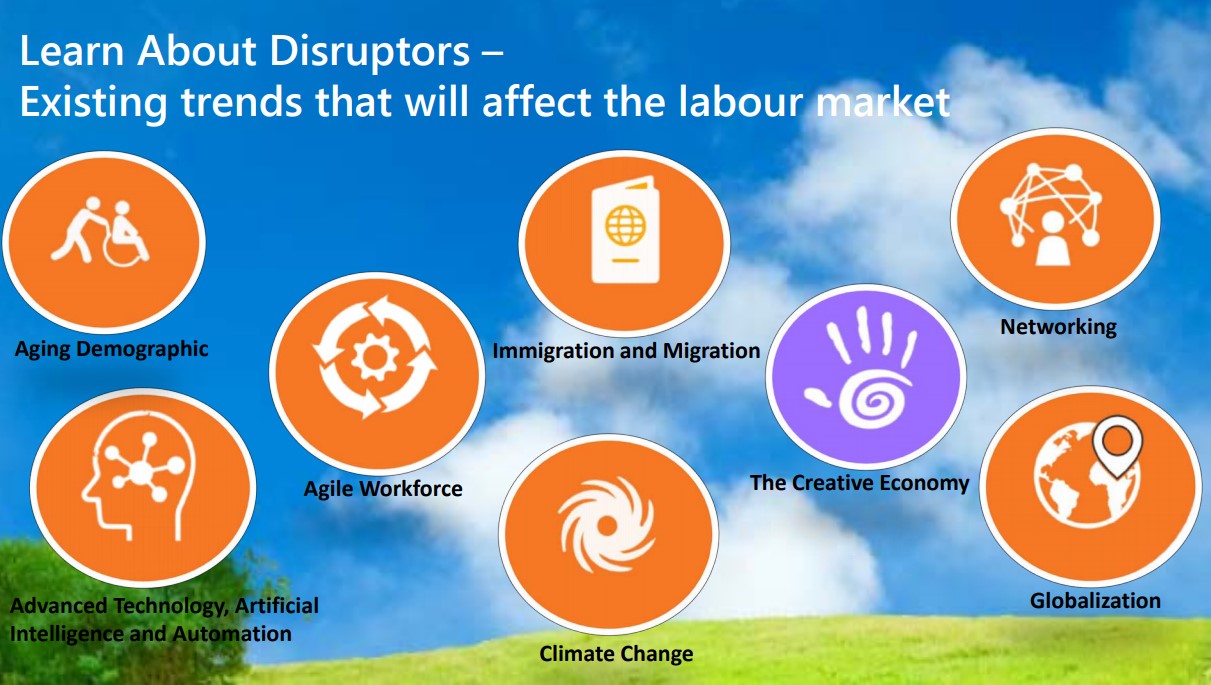
An inquiry project for students that explores the labour market around 6 Career Clusters: Sales and Service; Trades, Agriculture, Processing and Manufacturing; Arts, Culture, Sport and Fitness; Business, Administration and Science; Health; and Education, Community and Social Services, Law.
The second part explores the worlds disruptors: Aging Demographic; Agile Workforce; Immigration and Migration; Advanced Technology, AI and Automation; Climate Change; Globalization; Networking; Creative Economy
-
PSBC connects students to 30+ post-secondary (public and non profit opportunities) is BC. This site helps students not only learn about programs and courses, but it also helps them to compare and contrast, as well as provide helpful tips such as "10 things Students Need to Know". This site can also be used by parents and guidance counsellors and connects with BC Planner.
-
Students create a display that shows who they are and possible preferred pathways. Cold calls are made to community members that connect to their interest to come and visit the reverse career fair. This is an alternative Capstone for CLE (Model presented by Graeme Barber and Laura Stewart, NVSD).
-
11 workshops ranging from lessons on self awareness and promoting oneself to managing money.
-
An interactive web site with career quizzes, postsecondary school matching, and career matching.
-
Canada British Columbia (SkillsBC) has operated as a provincial not for profit/charitable organization, working with industry, educators, government and labour to promote rewarding and in-demand skilled trade & technology careers to BC’s youth.
-
StudentAidBC supports students each year with grants, loans and other financial programs. It is a provincial financial aid program to help British Columbians pay for college and university.
-
The Labour Relations Outlook provides a look at the top issues impacting the workforce and describes how other organizations have approached these challenges.

-
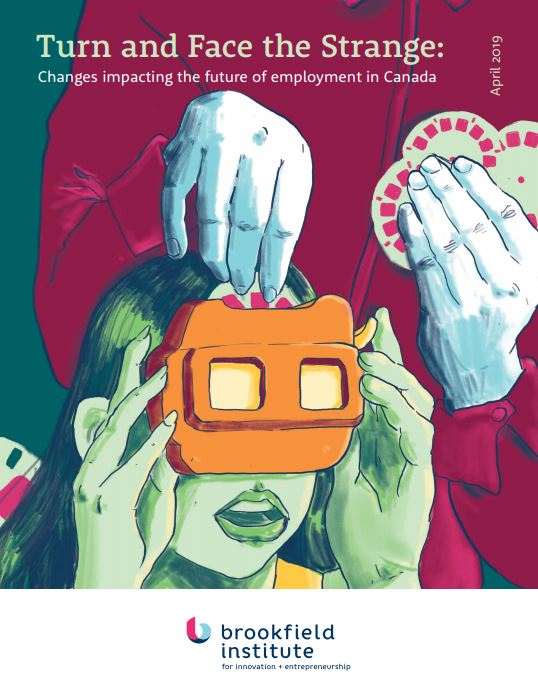 Turn and Face the Strange: Changes impacting the future of employment in Canada explores major trends in Canada: technological change, globalization, demographic change, environmental sustainability, urbanization, increasing inequality, political uncertainty. Brookfield Institute (2019)
Turn and Face the Strange: Changes impacting the future of employment in Canada explores major trends in Canada: technological change, globalization, demographic change, environmental sustainability, urbanization, increasing inequality, political uncertainty. Brookfield Institute (2019) The newest report is Ahead By a Decade in 2030
-
This guide offers a glimpse into the world of today’s emerging adult. It describes the multiplicity of pathways that youth follow when training for and finding their way in a labour market that is vastly different from when we were starting out. This booklet offers practical suggestions for constructive roles you can play, activities you can undertake, and resources you can use as you help your children make informed, personally satisfying career decisions.
-
Test of Workplace Essential Skills (TOWES) is Canada's literacy and essential skills assessment test. TOWES testing can be expanded on by using the Job Bank of Canada www.jobbank.gc.ca/essentialskills and search for jobs by essential skills. The level of essential skills is then listed by numbers in the description.
-
A hub for BC's public trades and training programs and services.
-
Udacity aims to reinvent education for the 21st century by bridging the gap between real-world skills, relevant education, and employment. They offer nanodegrees developed in collaboration with industry partners (such as Google, IBM, Facebook, MailChimp) and seek to provide skills in demand in short-course form.
Micro credentials recognise the achievement of a skill, skill sets or knowledge that is required by industry, professional associations, or the community. They are also referred to as nanodegrees, badges or stackable microdegrees. The best thing about microcredentials, is that they offer a new way to think about certifying a portfolio of skills, recognising small and discrete learning, as well as credentialing existing knowledge and skills.
-
EduData - An interactive graph that shows education and where graduates work.
-
British Columbia, Canada has one of North America’s most competitive, flexible, and supportive business climates. We consistently receive favourable credit ratings. Our vast resources, competitive taxes, stable and well-regulated financial system and fiscally responsible government attract investment from around the world.
This is a great resource to look at when asking students to explore their preferred locations.
-
Resources for teachers and students and information ranging from current labour market trends, a parent guide, to First Nations career resources.
-
Career Lessons and Activities (US based)
-
Worxica is a job market research tool. It tracks Canadian job market trends by collecting and analyzing information from millions of Canadian job ads found online in the past year. Worxica answers questions like: How many job postings were advertised in the past year in your selected occupation, in your region? Who was hiring? What skills and certifications did they require? How much did they pay? How does your region compare to the rest of your province / territory? - and more.
-
50 ways 50 tasks to get a job. An unconventional but fun approach that can be used to build self-awareness and future planning.
-
-
The Career Education 10-12 Guide provides comprehensive illustrations of numerous types of capstones and the process that students can undertake:
Connect and Collaborate
Create and Build
Create and Express
Innovation and Entrepreneurship
Investigate and Report
Personal Story
Service Learning
-
A step by step Capstone Guidebook from Mount Baker
-
This video encourages two essential questions:
1) What do you want to learn?2) How do you learn best?
-
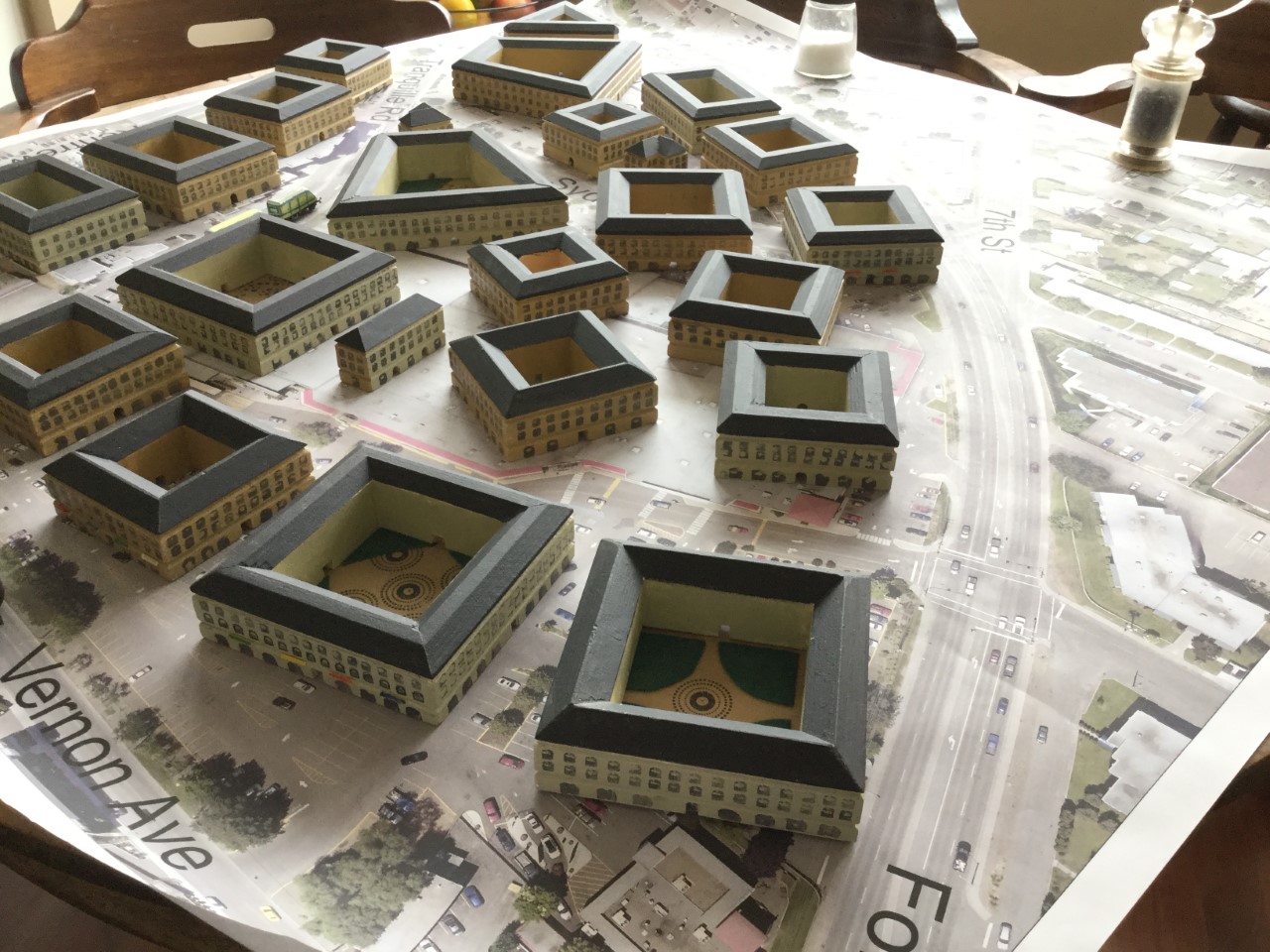 "Environmentally sustainable development has always been important to me since I was young; however, the job of community planning wasn't very attractive to me. After doing the capstone project I realized that this job is a lot more interesting to me than I thought. Now I realize that this career path is the one for me and I want to continue going along with it."
"Environmentally sustainable development has always been important to me since I was young; however, the job of community planning wasn't very attractive to me. After doing the capstone project I realized that this job is a lot more interesting to me than I thought. Now I realize that this career path is the one for me and I want to continue going along with it." -
Juniour Achievement is a community connection that can support capstone projects for young entrepreneurs and innovative students that want to create and organize businesses and have provided two sample annual reports made by SD 73 students through the Company Program:
1) Apicul
ture Annual Report
2) Recycled Sounds Annual Report
-
A KSA student organized and created an art display with numerous pieces at a local coffee shop Zacks.
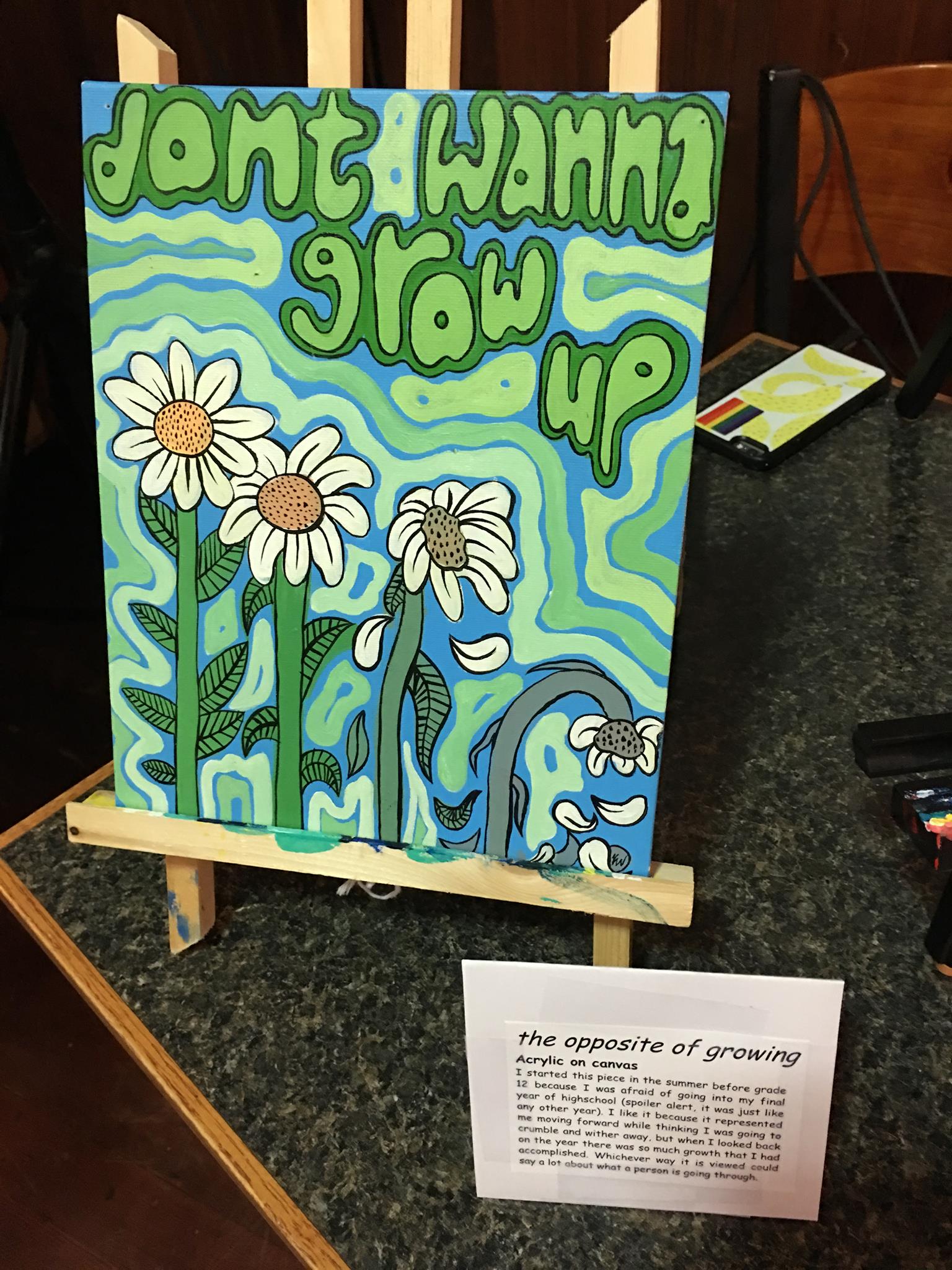
-
Video: The Senior Capstone Project Expo is the second annual expo held at East Hampton High School and attracted family, friends, faculty, and news teams from the surrounding areas of East Hampton, CT. Over 120 students participated in this event and was developed over the duration of their senior year. Projects ranged from all varieties such as starting clubs, fundraising, community involvement, and research conduction which students displayed in a science fair fashion. This movie is a small depiction of the projects the class of 2017 worked on as a requirement to graduate. (11:15 minutes)
-
An 8 page guide on reflective writing. This tool can be used to help assess all stages of the capstone.
-
